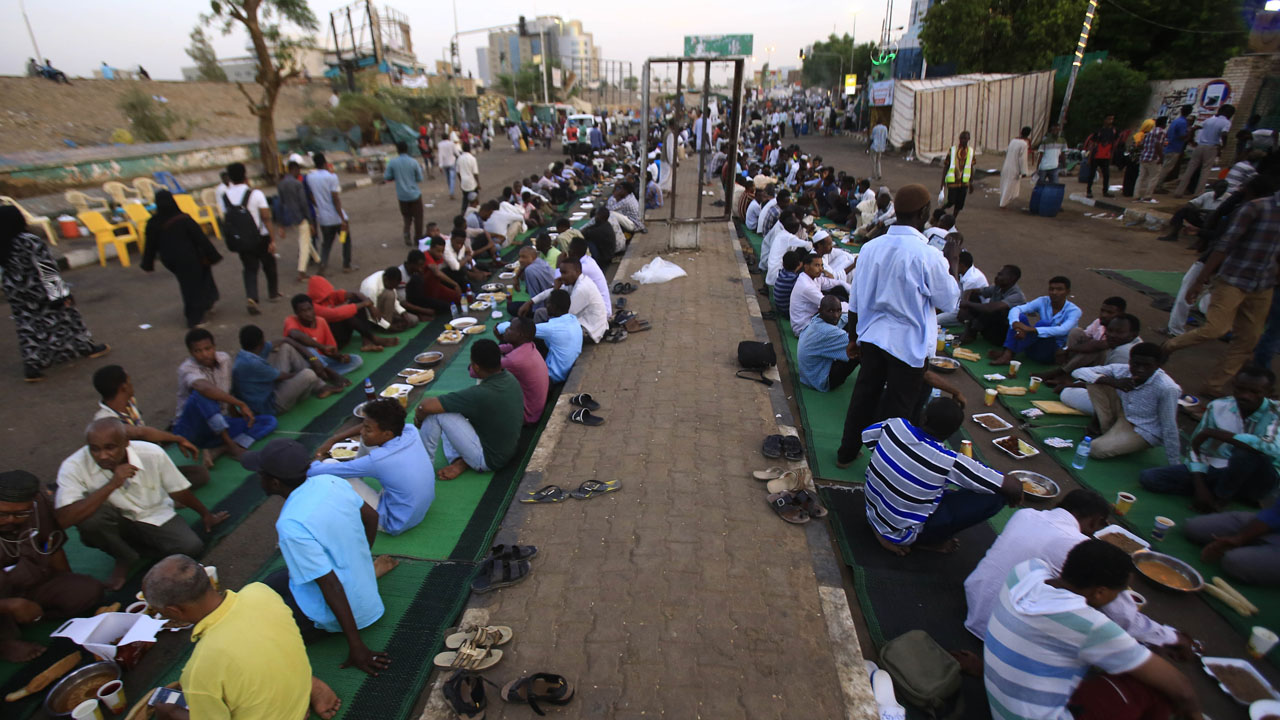
Some protesters are from Khartoum and want to know more about the conflict; others have travelled from the vast arid region itself, an area which has seen repeated waves of conflict since 2003.
“I know the history of Darfur well,” said Suleiman into a microphone, before listing widespread atrocities by Bashir’s forces and allied militiamen in Darfur during the early, most intense years of the conflict.
Darfur, in western Sudan, suffered one of the deadliest military campaigns of Bashir’s iron-fisted rule.
Hundreds of thousands were killed, while millions were displaced; most survivors still live in sprawling displaced camps.
The conflict erupted when ethnic minority rebels took up arms against Bashir’s then Arab-dominated government in Khartoum, accusing it of social and economic marginalisation.
Scorched earth tactics unleashed by Bashir’s forces saw village after village looted and razed.
The Hague-based International Criminal Court has charged Bashir with war crimes, crimes against humanity and genocide.
Bashir, who was deposed by the military on April 11 in response to protests outside army headquarters, denies the charges.
‘To kill and rape ‘
Although the level of violence in Darfur has fallen in recent years, atrocities in the vast region the size of France still haunt its residents.
“Our unity is our strength,” reads a slogan displayed on a tent built by Darfuri victims at the ongoing sit-in.
While protesters from across Sudan were happy to see Bashir deposed, they remain encamped outside army headquarters, to demand a military council that has held power these past few weeks hand over to civilian rule.
Many of those gathered at the tent in Khartoum are from Al-Salam camp in North Darfur.
“I lost my father and four brothers in attacks by Janjaweed,” said Abdallah Yassin, referring to much feared militia unleashed by Bashir’s government at the height of Darfur’s conflict.
Nomadic Arab raiders were recruited and armed by Khartoum, before being sent to attack villages on camel and horseback.
They were accused of murder, rape, looting and poisoning wells, in a campaign against ethnic groups suspected of supporting the rebels.
“When the militiamen attacked the village, they were in large numbers and we couldn’t defend ourselves,” said Yassin, 30, wearing a light blue shirt and grey trousers.
“They would gather us in one place, to kill, rape our sisters, our mothers, our grandmothers.”
“We demand that all those who committed crimes and massacres, all the symbols of (the former regime) be held responsible,” he said, adding that the victims must be compensated by the new authorities.
Ahmed Mahmoud, also a resident of Al-Salam camp, said he can’t forget what he witnessed during those years.
“Armed militiamen, on camels and horses, attacked defenceless men and raped women,” he said.
“There were air raids, people died.”
The carnage was such that “the flesh of murdered men and women mixed with those of animals,” he added, taking a sudden pause.
‘Stability, security’
Mahmoud said the suffering of those in camps persists, although the violence has abated.
“What we fundamentally want in Darfur is stability, security, education and health facilities,” said Ibrahim al-Haj, who hails from South Darfur.
“You get all that in Khartoum.”
Protest leaders who spearheaded the nationwide campaign against Bashir say that the ruling generals want to retain power, to help keep security across the country during a three year transition period tentatively agreed between the two sides.
But for protesters who come from Darfur, the generals are complicit in the atrocities committed in their homeland.
One personality who provokes particular ire is Mohamed Hamdan Dagalo, the deputy chief of the ruling military council.
Dagalo is the head of the Rapid Support Forces, a paramilitary group that has carried out operations against rebel groups in Darfur.
Darfuri protesters say they cannot countenance the idea of Dagalo and other generals having any hand in running the country.
Rights groups and victims of the Darfur conflict accuse Dagalo, widely known as Himeidti, of widespread abuses.
“Himeidti has committed crimes against us and he is still there,” said Ahmed Idris.
“We want a civilian government” he added, saying that it is the least people deserve after suffering so much.
“I’m here from North Darfur to explain how much we have suffered,” Idris emphasised.
[ad unit=2]



